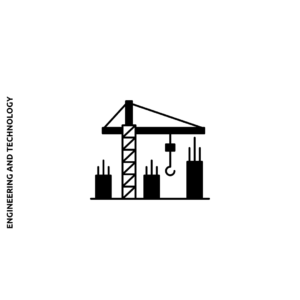Description
A Bachelor of Technology in Software Engineering (B.Tech in Software Engineering) is an undergraduate program focused on the principles and practices of software development, design, testing, and maintenance. This program equips students with the technical skills and knowledge needed to build and manage software systems effectively, ensuring they are capable of meeting user requirements and industry standards.
Curriculum Overview
The curriculum for a B.Tech in Software Engineering typically includes a mix of core computer science subjects, software development best practices, and specialized software engineering techniques. Here are some common subjects and areas of study in this program:
Programming Fundamentals:
Introduction to programming languages (e.g., Python, Java, C++) and foundational programming concepts.
Data Structures and Algorithms:
Study of data organization methods and algorithms for efficient problem-solving and data manipulation.
Software Development Life Cycle (SDLC):
Overview of the phases of software development, including planning, analysis, design, implementation, testing, and maintenance.
Software Requirements Engineering:
Techniques for gathering and analyzing user requirements to ensure the software meets stakeholder needs.
Software Design and Architecture:
Principles of software design, including design patterns, architectural styles, and system design methodologies.
Web Application Development:
Development of web-based applications, covering client-side (HTML, CSS, JavaScript) and server-side technologies (e.g., Node.js, PHP).
Mobile Application Development:
Techniques for designing and developing applications on mobile platforms, focusing on user experience and mobile-specific features.
Database Management Systems:
Fundamentals of database design, SQL, and methods for managing large datasets effectively.
Software Testing and Quality Assurance:
Techniques for verifying and validating software, including unit testing, integration testing, and automated testing strategies.
Agile Software Development:
Principles and practices of agile methodologies (e.g., Scrum, Kanban) to improve collaboration and flexibility in software projects.
Project Management for Software Engineering:
Skills for managing software projects, including planning, scheduling, budget management, and risk assessment.
Human-Computer Interaction (HCI):
Study of user-centric design and usability principles to improve the interaction between users and software applications.
DevOps Principles:
Technologies and practices for integrating software development (Dev) and IT operations (Ops) to improve collaboration and productivity.
Capstone Project/Internship:
Practical experience through a capstone project or internship, allowing students to apply their skills in real-world software development environments.
Career Opportunities
Graduates with a B.Tech in Software Engineering have various career opportunities in the software industry and related fields. Some potential job roles include:
Software Developer/Engineer: Designing, developing, testing, and maintaining software applications across various platforms.
Web Developer: Building and maintaining websites and web applications, focusing on functionality and user experience.
Mobile Application Developer: Creating applications for mobile devices using platforms such as Android and iOS.
Quality Assurance Engineer: Testing software to identify and resolve defects, ensuring quality and performance standards are met.
Systems Analyst: Analyzing business needs and translating them into technical requirements for software development.
Project Manager: Leading software development projects, coordinating teams, and ensuring timely delivery of software solutions.
Business Analyst: Evaluating business processes and identifying technology solutions to improve efficiency and effectiveness.
Technical Architect: Designing software architecture and frameworks, making high-level design choices for software solutions.
DevOps Engineer: Integrating development and operations processes to improve deployment frequency, reliability, and time to market.
Data Engineer/Analyst: Working with databases and data pipelines, analyzing data to support decision-making and inform software development.
Further Education
Graduates may choose to pursue a Master?s degree in Software Engineering, Computer Science, Data Science, or related fields for further specialization. Obtaining certifications in specific technologies or methodologies (such as Agile, DevOps, or cloud computing) can also enhance career prospects and advancement opportunities.
If you have any further questions about the curriculum, potential career paths, or other aspects of a Bachelor of Technology in Software Engineering, feel free to ask!









